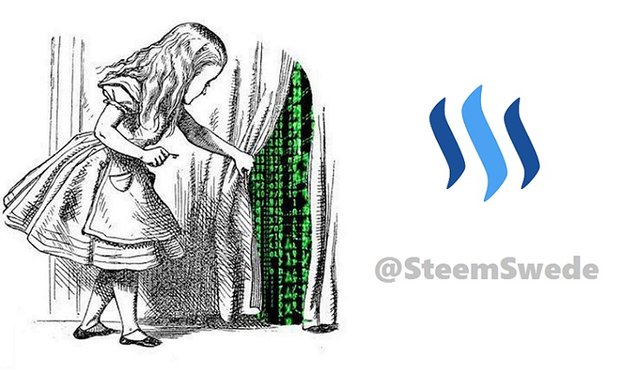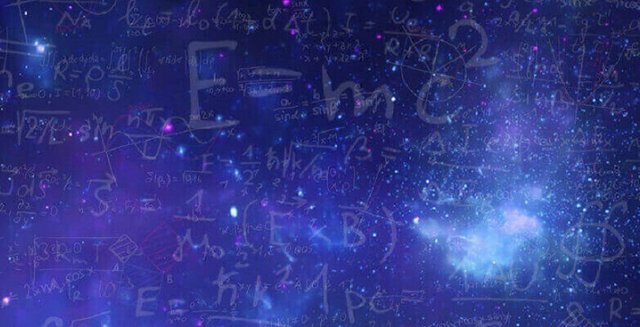[PHILOSOPHY] Are We Living in a Simulation?

The Taoist monk Zhuang Zhou was always happy and energetic. But one day, his disciples found him sitting in his room, crying in confusion. They asked him what happened, whereupon he told them he had a dream wherein he was a butterfly. He had felt the wind and the scents - just as if he had been there. The disciples looked surprised, and wondered the problem was. The monk replied: "Now I don't know whether I'm a monk dreaming that I am a butterfly, or a butterfly dreaming that I am a monk."
"Suddenly he woke up and there he was, solid and unmistakable Zhuang Zhou. But he didn't know if he was Zhuang Zhou who had dreamt he was a butterfly, or a butterfly dreaming that he was Zhuang Zhou. Between Zhuang Zhou and the butterfly there must be some distinction! This is called the Transformation of Things." — Zhuangzi, chapter 2
Even the ancient Greek philosophers pondered whether the world was perhaps only an illusion, and Plato argued that all we perceived were only shadows of reality. The enlightenment philosopher René Descartes questioned whether it is possible to trust our senses, and Arthur Schopenhauer came to the conclusion that we do not actually exist as people. Descartes remarked that sometimes we have dreams where we don't know that we are dreaming. If we can mistake a dream for reality, what reason do we then have to believe that what we perceive as reality in fact is not a dream? An answer to Descartes' radical doubt on the existence of the world is that although it's possible that I'm in a dream right now, I have no reason to believe that I am in a dream. It's also possible that I'm not in a dream, and in the absence of arguments or evidence for the dream hypothesis we need not take it seriously. But the development in VR and simulated worlds revives some doubt. If and when a virtual world and virtual people become indistinguishable from the "real" we need to rethink our assumptions about the nature of reality.
In popular culture it's not a new theme either. We have Fassbinder's "Welt am Draht" (1973) for example; a truly wonderful TV movie in two parts about people who're working on simulating a world, only to find out that they actually live in a simulated world. The Matrix and The Thirteenth Floor are other more recent examples.
The Simulation Argument
Swedish philosopher Nick Bostrom argues that the world we live in is merely a computer simulation, and that thus nothing is real. His theory is based on statistical probability, with the starting point in the assumption that computer technology will continue to evolve. Bostrom believes that technological developments in areas such as artificial intelligence in the future could lead to computer simulations that are so real that the simulations themselves think they are real. We are far from such technological capacities today, but who knows what we are able to create in 1000's or 100000's or millions of years. Bostrom sees three different possible future scenarios:
1. The first alternativ is that the human species die out before we develop the ability to simulate human consciousness.
2. The second alternative is that the technology can be developed, but that it will never be tried due to moral or legal reasons. Bostrom views this scenario as the least likely, since a technique such as this would be far too interesting to mankind.
3. The third alternative is that the technology will be developed and actually used. The amount of simulated worlds will probably be large; wouldn't you have been tempted to run a simulation on your computer to see how 'the people' developed and ponder life's mysteries?
What would be the likelihood that we belong to the real world, when there may be thousands, if not millions of simulated worlds? Statistically, the likelihood is almost non-existent. Maybe each simulation in turn developed so far as to create their own simulations, and thus that there might be multiple levels of reality. Perhaps God is just a pimply teenager in front of his computer.
Some researchers in fact argue that we're not further away than a few decades from being able to simulate conscious life. But to simulate an entire world would of course require a huge capacity, but perhaps not as much as we first imagine. Instead of simulating the world in detail, you only need to simulate that which is being perceived. Other galaxies and planets need not be simulated in greater detail than the bright spots seen from Earth, and the microscopic world need only be simulated in detail when someone sees it.

Where do we look for signs?
We can start by looking for the limits of the simulation, and see how the programming is optimized to not waste resources.
Through quantum physics and cosmology, we find a number of such observations:
- The world has a minimum pixel size (T'Hooft, holographic prinicple, Planck length etc.)
- The world is there with all the properties just if we observe it, otherwise it constitutes an average(quantum physics, some interpretations of the wave function collapse)
- The world constantly create a series of horizons, beyond which we can't make any observations, so that it requires only a limited amount of data to simulate our local world (horizons beyond which the expanding universe isn't observable, black holes etc.)
- The world looks complicated in for example how water consists of a lot of water molecules, but they in fact lack individuality. All elementary particles of a given kind are, apart from a few parameters, exactly alike. In some situations, they even cease to exist (Pauli exclusion principle, superconductivity etc.)
- The world contains correlations of the strangest kind, seemingly just to make it appear logical, causal and sensible to us, while it's simply an absurd impossibility without reasonable interpretation at the micro level (Bell's Theorem etc.)
But does it really matter what sort of things we are, whether we are simulations or nor, anyway? We already know that the universe is far more strange than we can imagine. According to our best scientific theories of reality, everything consists one-dimensional strings ('super strings') that vibrates in eleven dimensions. The universe is either infinite or 'just' unimaginably large, and is just one of many worlds in a multiverse. Sure, it would appear strange that we are all digital characters in someone's design, but not much more strange than much of what we have already accepted about our universe.
--------------------------------------------------------------------------------------------------------------------
You can read Nick Bostrom's argument in detail on www.simulation-argument.com/simulation.pdf
Also read @dwinblood's fascinating article on the subject: If reality were only a simulation how would WE the simulants be able to know for sure?
There is a wider possible class of manufactured universes than just simulations of earlier universes. Through genetic algorithms and cellular automata experiments, useful sentient universes may emerge that are not simulated and could not have been designed directly.
Whoa....the whole earth could be one big experiment. hmm...
Incredible post, how do this not get votes? Man This isn't fair at all this was very well written and holds much weight! Cheers!!!
Very good article. I had fun reading it! A rarity these days ..
appreciate it, thank you!
What a great text. I have seen Bostrom's vids and Susskind. Ideal for first timers to these ideas. Thx muchly.
Thanks, glad you liked it! This discussion is also great.
there is research being done to find out if what if the universe is like a cd at the moment. believe it or not
musk said it!
He did indeed!
http://singularityhub.com/2016/06/23/elon-musk-says-were-probably-living-in-a-computer-simulation-heres-the-science/
Great article!
thank you!
I would like to be a whale to give you a huge payout from this post, but it's life.
Great post
thank you for reading, glad you enjoyed it!
This is The Matrix.
Thank you @steemswede. Reciprocating the love.
Followed you as well.
Supported ✅